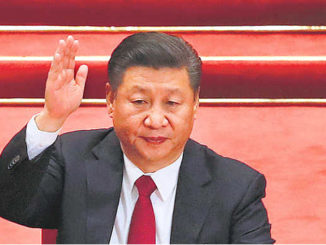
NEW DELHI: The Supreme Court, today, dismissed a public interest litigation (PIL) filed by a journalist seeking quashing of amendments made in Citizenship Act which deny voting rights to Overseas Citizens of India (OCI) saying that he cannot espouse the cause of people well settled abroad.
“The writ petition is for the people who are well settled abroad. The PIL is not for those people but for those who cannot afford to approach this court,” a bench comprising Chief Justice HL Dattu and Justice Arun Mishra said.
“You cannot be saying that I am trying to espouse the cause of these people,” the bench said when the counsel for the scribe, G Venkatesh Rao, pressed for taking note of this submission.
The bench also questioned senior journalist S Venkat Narayan for filing the PIL when he himself was not affected and those hit are keeping themselves away from approaching the apex court.
“Why are you holding the brief for others? The person really affected will come before us,” the bench said while disagreeing with logic that the journalist, who has travelled to 60 countries, was representing those having lost their Indian citizenship.
The bench did not agree that the present PIL should be treated on different footing than others including the one in which plea has been made for allowing Non-resident Indians (NRIs) to vote by electronic mode from abroad.
It concluded the hearing by saying that “we decline to entertain the writ petition and accordingly it is dismissed”.
“We make it clear that the dismissal of this writ petition will not come in the way of other petitions pending in this court,” the bench added.
The plea had said the denial of voting rights to persons having OCI status violates fundamental rights as it is “discriminative to a class of citizens of India who are not only being denied equality before law and equal protection of laws, but also rights and freedoms relating to life, liberty and dignity of the individual”.
The PIL had challenged the amendment made in 2004 in the Citizenship Act saying that the restriction of denying a voting right to OCIs is not “reasonable, fair, just and equitable”.
Denial of voting right to OCI has been effected by introduction of a new section-7-B(2)(f) and simultaneous deletion of section-12 of the Citizenship Act, 1955 which had been dealing with the issue of dual citizenship prior to 2004. The plea had termed the changes as “arbitrary, whimsical, baseless and effecting the legitimate rights to representation to a class of citizens of India” and added that the Indian diaspora of about 25 million expatriate Indians and People of Indian origin were living in 192 countries of the world.
It said the ‘Citizenship Amendment Act, 2004’ had come into being on the basis of a report of a ‘High Level Committee’ (HLC) on the Indian diaspora under the chairmanship of jurist LM Singhvi.
The petition had claimed that the recommendations given by the panel on ‘dual citizenship’ issue have not been appreciated in the “larger context of giving rights of representation to this vast group of the Indian diaspora”.
“These rights of representation have been denied by the central government under the OCI status, the only ostensible reason being administrative difficulties, which is by no stretch tenable in today’s technology-driven world.
“The ‘HLC’ Report has recognised the fact that ‘dual citizenship’ is being granted in about 70 countries of the world, which consider their diaspora a valuable asset deserving of all recognition and status,” it had said.





Be the first to comment